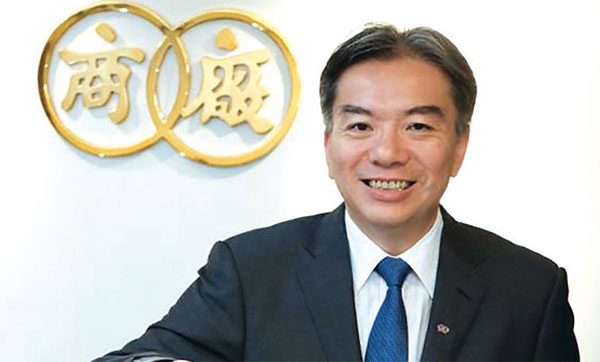MPF a classic example for mainland's pension reform
Updated: 2017-03-15 07:55
By Luo Weiteng(HK Edition)
|
|||||||
|
David Wong Yau-kar, a Hong Kong deputy to the National People's Congress and chairman of the Mandatory Provident Fund Schemes Authority, suggests that mainland pension reform policymakers draw lessons from Hong Kong's Mandatory Provident Fund scheme. Provided to China Daily |
Hong Kong's Mandatory Provident Fund (MPF) scheme might offer pointers in the reform of the Chinese mainland's pension fund system, which is long overdue as the demographic time bomb ticks, an industry expert says.
"Certainly, not a single jurisdiction's pension fund scheme can be perfect. But Hong Kong's MPF system is the one, I would say, that comes with the fewest shortcomings," David Wong Yau-kar, a Hong Kong deputy to the National People's Congress and chairman of the Mandatory Provident Fund Schemes Authority, told China Daily in Beijing.
Compared with the traditional pension scheme on the mainland and many other countries, where money was pooled and employers offered a defined contribution rather than defined benefit plan, Hong Kong's compulsory savings scheme was a newly developed concept that gave every eligible employee a personal account so they had a clear idea of what they had invested in and what they would obtain, he said.
"If people work and contribute for decades, they shouldn't be denied a certain degree of transparency to know their benefits and build up confidence in the system," Wong noted. "One could hardly expect too much about the sustainability of a pension scheme for a population largely skeptical about the fairness, reliability and flexibility of pensions."
Wong believed this is where mainland pension fund reform policymakers could draw a lesson from their Hong Kong counterparts.
An ideal mechanism is a combination of Hong Kong-styled MPF and complementary social security plans, such as the city's Old Age Allowance. The former is the basis of pension provision but may not be able to cover all walks of life. The latter is a safety net to protect those not covered by the MPF.
As the world's second-largest economy drifts into demographic peril, with the proportion of working-age people declining and the number of elderly on the rise, pension fund reform becomes a pressing issue for policymakers.
"With the number of pensioners set to soar, and the number of young workers able to support them unable to keep up, a pension crisis is looming ahead," Wong warned. "The situation allows no delay."
The hard fact is excessively high contributions to pension funds already impose a huge burden on mainland corporates, but are far from enough to shore up people's confidence, highlighting the urgent need to breathe new life into the system. Policymakers are pressing ahead with the issue of pension portability and more dramatic action is needed, Wong reckoned. "This marks the essential first step to switch the pension system from cities and provinces to the national government. People should be allowed to move with their pension benefits."
Wong believed that pension fund reform, as a broad and sophisticated issue, really takes time. This also goes for Hong Kong, where the MPF system has long been bombarded with a battery of barriers like its low maximum mandatory contributions, high management fees and an implicit requirement of investment knowledge.
The scheme should not cap the maximum mandatory contributions too low at HK$1,500 every month, Wong noted.
Roger Lau, a Hong Kong-based institutional business director at Schroder Investment Management, said last month the downward trajectory of management fees has now proved to be trend for the industry.
sophia@chinadailyhk.com
(HK Edition 03/15/2017 page8)
